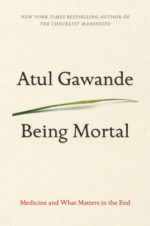Finding the Intersection of “Be Nice” and “Know a Lot”
Posted on | September 28, 2011 | Comments Off on Finding the Intersection of “Be Nice” and “Know a Lot”
No Child Left Behind is apparently disappearing with a whimper, or at least a waiver. The originally bipartisan law has become a bad brand.
The pragmatics of the law’s demise rest in its rather silly calculation of test scores, and the backloading of expectations so that in the final years of the law the majority of schools in the United States would be labeled as failures, something that no state, governor, or education secretary could stand politically.
But the problem with the whimpering exit is that we haven’t gotten to the root of the matter or had the political debate about what we want from the schools.
In a recent column Jeff Camp raises the question of the content of student character: whether and how it should be taught and evaluated. “A simple ‘character score’ would be of little use,” he writes, “the true point of this kind of evaluation would be to drive conversations and self-reflection about things that actually matter.”
But even reflecting on things that matter or engaging in “performance character,” does not take place without context. One needs to know how to connect personal niceness with the nation’s history and struggles. We are not doing such a good job at that.
A recent Southern Poverty Law Center study written by Kate Shuster with a forward by Julian Bond found that academic standards virtually ignore our civil rights history. Or when taught it turns into a fable: there used to be segregation, then Dr. King came along, and now everything is alright.
The ability to make sense of history, and thus to ‘act nice’ in a social sense, rests, on knowledge coupled with schooled training in public action. Action without knowledge is simply gut-level response and no-nothing politics. Knowledge without action is a waste: test scores without a purposeful anchor. (Shuster, whose doctoral research at Claremont Graduate University finds a lack of efficacy in state minimum competency tests, illustrates that point in her dissertation.)
As California looks hard at how it assesses schools and students, it needs to look at the intersection of nice and knowledgeable.
(As to my own education in context, read below.)
Tags: Civil Rights > Kate Shuster > Southern Poverty Law Center




